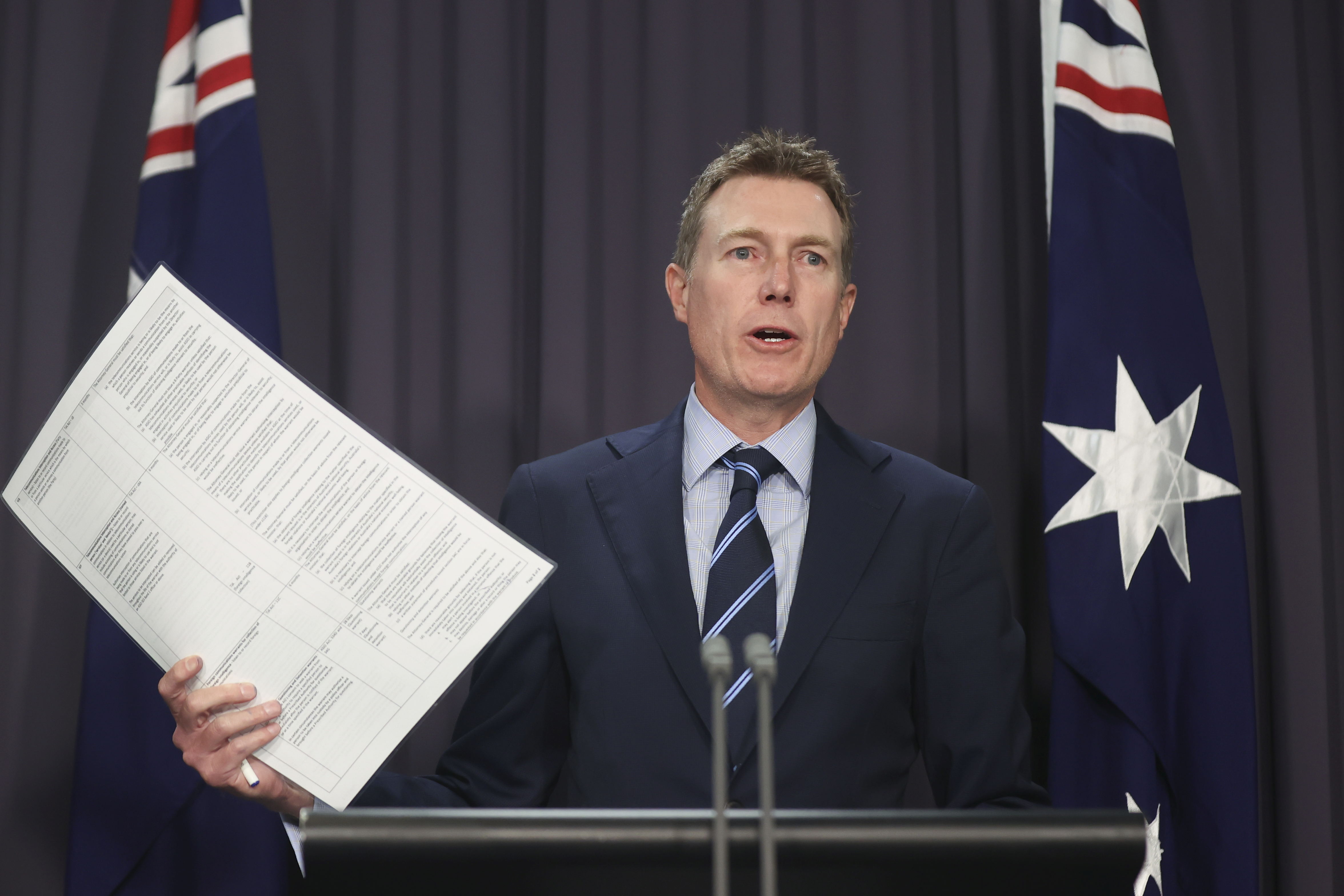The largest review of Australia's spy laws since the early 1980s has recommended an overhaul of the convoluted and outdated laws governing digital surveillance and data collection.
The Federal Government has publicly released a declassified version of the independent review today, a year after the 18-month investigation was concluded by former ASIO boss Dennis Richardson.
It follows calls from the federal opposition to publicly release the report, with parliament set to debate a number of significant national security reforms before the end of the year.

Of the 1600-page report's 203 recommendations, 190 have now been released to the public in a 1300-page declassified version.
Announcing the review's release this afternoon, Attorney-General Christian Porter said that Mr Richardson's "centrepeice" recommendation is the creation of a single, consolidated electronic surveillance act.
More than a quarter of the report's recommendations relate to this recommendation.
Mr Porter described the move as "the biggest national security legislative project in recent history", requiring the re-writing of almost 1000 pages of law on warrants, interception and communication.
The current telecommunications interception and access act was developed in 1979, before the development of the World Wide Web or digital technologies.
The act, which originally run to 19 pages, has since been amended 107 times and is now 411 pages long.
"It is no longer fit for purpose in the digital world of internet smart phones and end-to-end encryption," Mr Porter said.
"They (the acts) have become increasingly hard to navigate and are unnecessarily complex."
He said that this and several other acts would be consolidated into one simplified document - a complex process that is anticipated to take between 12 and 18 months.
Of the review's 203 recommendations, the government has only rejected four.
These include a recommendation that the Australia Defence Force (ADF) should not be given immunity for telecommunications offences in a similar manner to intelligence agencies.
Mr Porter admitted there were "narrow circumstances" where the ADF would require such an immunity, but "more work needs to be done" on any such legislation.
Another recommendation spurned by the government was that the Australian Secret Intelligence Service (ASIS) - which is responsible for Australia's overseas intelligence collection - be blocked from supporting ASIO onshore.
"I think one of Dennis's concerns... was not the fact of ASIS assistance but he did not want there to be conflict or competition between two intelligence agencies working in Australia," Mr Porter said.
Instead, Mr Porter said that the government concluded a better approach would be to only allow ASIS assistance at ASIO's request.
from 9News https://ift.tt/33LasTU
via IFTTT


0 Comments